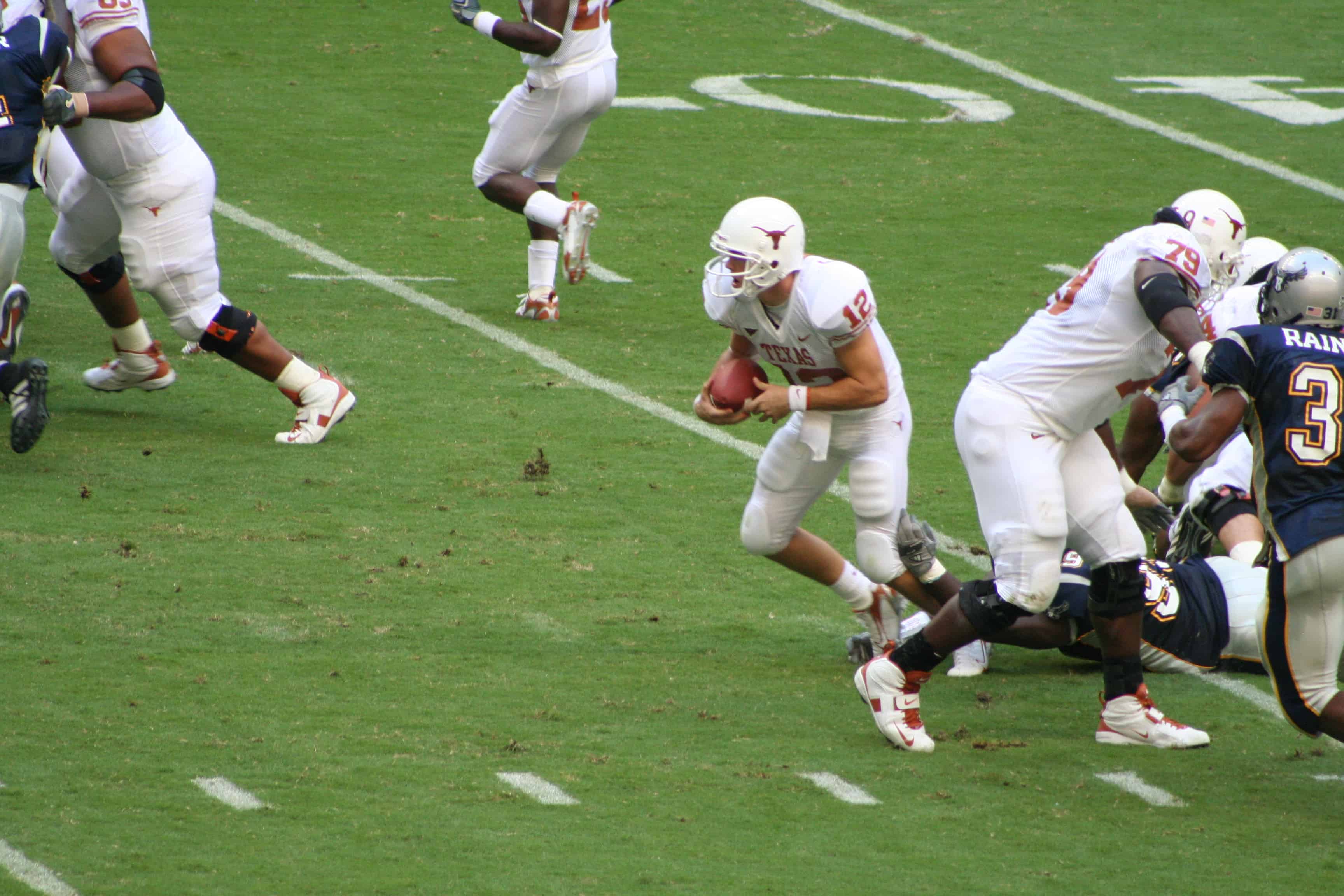College football is back, baby! There are oodles of games to get excited about and most fanatics will start with the season opener of their favorite team. Personally, I am super pumped for a “New Day” in Columbus, Ohio! All that being said, I want to focus on something more important than National Championships and thrilling victories. I want to unveil a hidden yet incredibly common reality behind these amazing, young, talented, and explosive athletes who go toe to toe for 60 minutes on the gridiron: Many of these young men may be suffering with mental illness in silence.
Today, 30% of college students (including athletes) report feeling depressed and 50% feel overwhelmed by anxiety. In the clinical counseling field, anxiety and depression are like best friends – it is hard not to spot them hanging out together. High levels of untreated anxiety and depression, coupled with major life changes, like an athletic injury that keeps a player sidelined for the year, can lead to suicidal ideation and suicide attempts. Notably, suicide is the second leading cause of death among college students, claiming 1,000 lives each year.
The much-discussed and sometimes dismissed neurological condition CTE can also lead to depression and suicide in athletes. Tyler Hilinski was a star quarterback at Washington State University who shot himself rather unexpectedly on January 16, 2018. He showed no signs of depression and anxiety, and by all accounts was a very enthusiastic and happy young man. Interestingly, however, his autopsy revealed that he did have CTE. His head trauma may have caused Tyler to experience symptoms of depression that he could very well have been hiding for a long time.
Now, I imagine college athletes to be very strong-willed individuals. And it is not outside of the realm of possibility for college football players to put on a “good face” to hide their interior sufferings. This possibility is why head coach Dabo Swinney of Clemson University has created what he calls the “safe seat” for his players to express and share anything and everything about their history and what they are going through inside. To get players to open up, Dabo asks them important questions like “what was it like growing up without your dad?” His players know that it is safe to share anything with their teammates, especially things that pertain to mental illness. This openness about mental health issues creates a culture of change that destroys stigma and restores lives.
For me, it is imperative to destroy the stigma surrounding mental illness if we are to revitalize our society. Today, it is still seemingly easier to talk with loved ones about the fact that you or a family member has cancer than to confess that you or a family member suffers from depression, bipolar disorder, OCD, PTSD, or schizophrenia. Why? Simple… stigma. The stigma surrounding mental illness is that people who are mentally ill are “crazy,” “disturbed,” “unstable,” “weak,” and “needy.” There is generally less empathy for someone who suffers from depression or anxiety than for one who has other physical disabilities.
There is a tweet from athletenetwork.com that says that “mental illness is probably one of the greatest silent epidemics in the country” and I have to agree. To break the silence, I propose the institution of more “safe seats” in our parishes, our local community boards, our families, our classrooms and schools, and anywhere else you can think of.
I realize that talking about mental health issues with others is a private and personal matter. But I have found that the privatization of mental illness prevents people from getting the help and support they actually need from professionals and the community around them. It is time to break the silence. It is time to break the stigma. When you can line up four people in any classroom in the country and tell the class that statistics demonstrate that one of the four is suffering from a mental illness, you know that of the 20 others in the classroom, five of them likely have something they share in common which they would benefit from talking about.
The sheer prevalence and commonality of mental illness should pave the way for open discussions about personal experience with mental illness in classrooms and parishes, etc. in a non-judgmental, open, and safe space. Vulnerability should lead to support not ostracization. If we break the silence around our struggles we will break the stigma and promote healthier communities.
For college athletes, and no less for ourselves, the alternative to a “safe seat” is withdrawal and isolation. And these two beasts are known to lead to more chaos and less connection, which doesn’t make for great teamwork. Indeed, if your favorite team is going to win its opening game, they will need to be very connected. In like manner, if college athletes and people, in general, are going to win in life, we will need to be connected. Connection happens when we are open and vulnerable. Indeed, our strength to connect lies in this very vulnerability and openness. It’s time to connect; it’s time for kickoff. And it’s an even better time for a safe seat. So grab yours today and enjoy the game!
***
image courtesy of wikimedia commons user johntex


